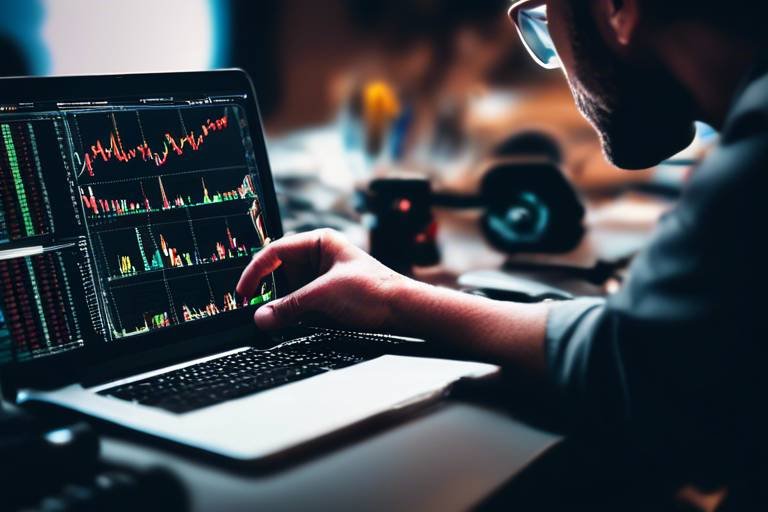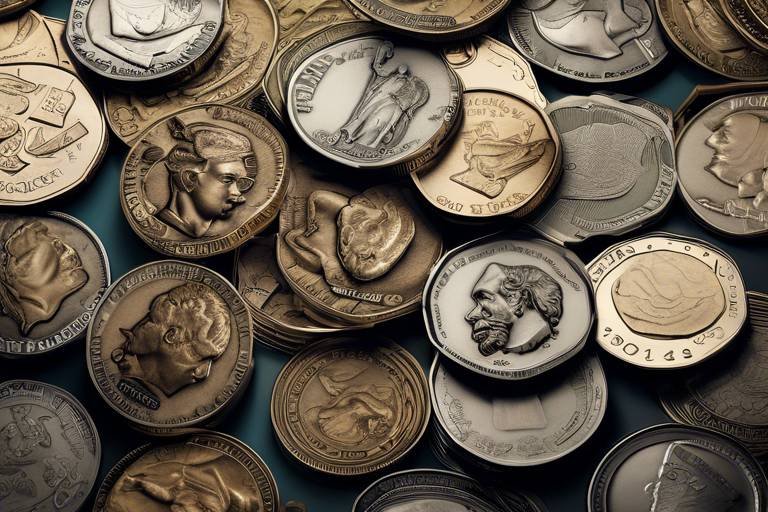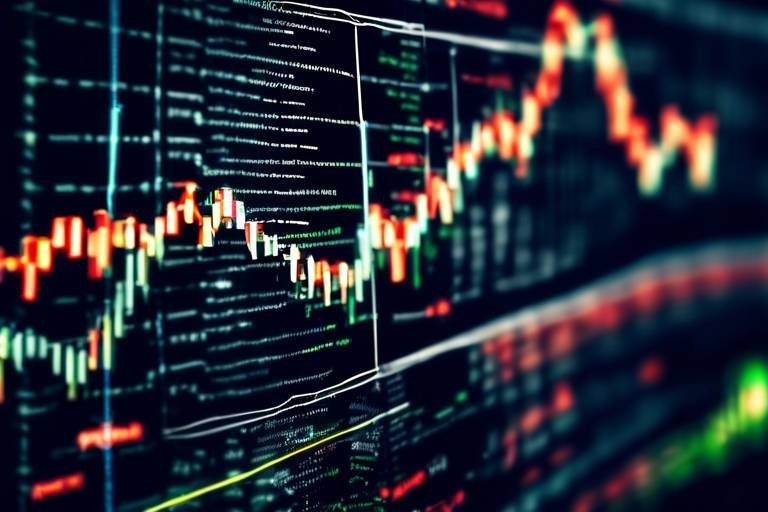Understanding the Risks of Cryptocurrency Trading
Cryptocurrency trading has taken the financial world by storm, captivating the attention of investors and traders alike. However, diving into this digital gold rush isn't without its pitfalls. In fact, understanding the myriad of risks associated with cryptocurrency trading is crucial for anyone looking to navigate this volatile landscape. Think of it like sailing through uncharted waters; without a solid map and understanding of the currents, you might find yourself adrift or worse, capsized. This article explores the various risks associated with cryptocurrency trading, including market volatility, security issues, regulatory challenges, and psychological factors that traders must consider to make informed decisions.
One of the most striking features of cryptocurrency markets is their extreme price fluctuations. Unlike traditional stocks or commodities, cryptocurrencies can swing wildly in value within a matter of hours or even minutes. This volatility can be attributed to several factors, including market sentiment, technological advancements, and external economic influences. For instance, a single tweet from a prominent figure can send prices soaring or plummeting. As a trader, understanding these dynamics is essential for developing effective trading strategies and risk management techniques. You might find yourself asking, "How can I protect my investments in such a chaotic environment?" The answer lies in thorough research and the adoption of a well-defined trading plan.
Security is a paramount concern in cryptocurrency trading. The digital nature of cryptocurrencies makes them attractive targets for hackers and fraudsters. Common security threats include hacking, phishing attacks, and scams that can lead to significant financial losses. To safeguard your investments, it's vital to adopt best practices for security. This includes using strong passwords, being cautious of unsolicited communications, and regularly updating your software. The reality is that in the world of crypto, if you're not taking security seriously, you might as well be leaving your wallet wide open on a busy street.
Many traders rely on exchanges to buy and sell cryptocurrencies, but this reliance comes with its own set of risks. Exchanges can be vulnerable to hacks and technical failures, which can result in the loss of funds. It's essential to choose a secure platform, preferably one that has a strong track record of security and customer support. Look for exchanges that offer features like insurance on deposits and transparent operational practices. The landscape is littered with stories of traders losing their hard-earned money due to exchange failures, so don’t let yourself become another cautionary tale.
When it comes to storing your cryptocurrencies, understanding the differences between cold and hot wallets is crucial. Cold wallets, which are offline storage options, provide enhanced security against online threats. On the other hand, hot wallets, which are connected to the internet, offer greater convenience for trading but come with increased risks. Here’s a quick comparison:
| Type | Pros | Cons |
|---|---|---|
| Cold Wallet | High security, offline storage | Less convenient for trading |
| Hot Wallet | Easy access, convenient for trading | Higher risk of hacks |
Ultimately, the choice between cold and hot wallets depends on your trading habits and security preferences. If you’re a frequent trader, a hot wallet might be more suitable, but if you’re looking to hold long-term, consider a cold wallet for added peace of mind.
Implementing two-factor authentication (2FA) can significantly enhance your security measures. This simple yet effective step requires you to verify your identity through a second method, such as a text message or an authentication app, whenever you log in. Think of it as adding an extra lock to your front door; it may take a little more time, but it gives you that added layer of protection against unauthorized access. Many traders overlook this step, but it's a critical component of securing your trading accounts.
The regulatory landscape for cryptocurrencies is constantly evolving, which can create a sense of uncertainty for traders. Laws and regulations vary widely from one country to another, and staying informed about these changes is essential. Failing to comply with local regulations can lead to severe penalties, including fines or even criminal charges. As a trader, it’s your responsibility to understand the legal framework within which you operate. This knowledge not only protects you but also helps you make informed decisions about your trading strategies.
Trading is not just about numbers; it's also about emotions. The psychological aspect of trading plays a vital role in decision-making. Many traders find themselves grappling with emotional challenges, such as fear and greed, which can cloud judgment and lead to poor decisions. Imagine being on a rollercoaster; the highs can feel exhilarating, but the lows can be terrifying. Maintaining a disciplined approach is crucial to navigating these emotional ups and downs. Developing a solid trading plan and sticking to it, regardless of market conditions, can help you stay grounded.
Fear and greed are two powerful emotions that can heavily influence trading behavior. Fear can lead to panic selling during a market downturn, while greed can result in holding onto a position for too long, hoping for even greater profits. Understanding these emotions and their impact on your trading decisions is essential. Consider implementing strategies such as setting stop-loss orders or taking profits at predetermined levels to mitigate the effects of these emotions.
Overtrading can lead to significant losses, often stemming from impulsive trading decisions driven by emotions. It’s easy to get caught up in the excitement of the market, but this can cloud your judgment and lead to rash choices. To maintain a balanced approach, establish clear trading rules and stick to them. Take breaks when needed, and don’t let the fear of missing out (FOMO) dictate your actions. Remember, trading is a marathon, not a sprint.
- What are the main risks of cryptocurrency trading? The main risks include market volatility, security threats, regulatory challenges, and psychological factors.
- How can I protect my investments? Use secure wallets, implement two-factor authentication, and stay informed about regulations.
- What is the difference between cold and hot wallets? Cold wallets are offline and more secure, while hot wallets are online and more convenient.
- How do emotions affect trading decisions? Emotions like fear and greed can lead to impulsive decisions, impacting overall trading performance.

Market Volatility
When it comes to cryptocurrency trading, one of the most striking characteristics that sets it apart from traditional markets is its extreme volatility. Prices can soar to dizzying heights one moment and plummet into the abyss the next. This rollercoaster ride of values can be thrilling for traders but also poses significant risks. So, what causes this volatility? Well, several factors contribute to these wild price swings, and understanding them is crucial for anyone looking to navigate the crypto waters.
One of the primary drivers of is the sheer speculation that surrounds cryptocurrencies. Unlike stocks, which are often backed by tangible assets or earnings, cryptocurrencies are largely driven by investor sentiment. When news breaks—whether it's a regulatory change, a technological advancement, or even a celebrity endorsement—the market can react drastically. For instance, a tweet from a high-profile individual can send prices skyrocketing or crashing within minutes. This kind of speculative trading can lead to rapid price movements that are hard to predict.
Another factor contributing to volatility is the liquidity of the market. Many cryptocurrencies have lower trading volumes compared to traditional assets. This means that even a small number of buy or sell orders can significantly impact the price. Imagine trying to fill a large bucket with water using a tiny hose; it takes time, and if you turn the hose on too quickly, you risk spilling everywhere. In the crypto world, a similar principle applies. When large trades occur, they can create a ripple effect, causing prices to swing wildly.
Moreover, the regulatory landscape adds another layer of uncertainty. As governments around the world grapple with how to regulate cryptocurrencies, any news regarding potential regulations can lead to panic or excitement among traders. For example, news of a country banning cryptocurrency trading can lead to a sharp decline in prices, while positive regulatory news can lead to sudden price increases. This uncertainty can keep traders on their toes, making it essential to stay informed about the latest developments.
So, how does all this volatility impact trading strategies? Well, it requires traders to adopt a more cautious approach. Risk management becomes paramount. Traders must implement strategies that account for potential price swings, such as setting stop-loss orders to limit potential losses. Additionally, diversifying one's portfolio can help mitigate risks associated with individual assets. Think of it like having a safety net; while you may want to take risks, having a backup plan can save you from a catastrophic fall.
In conclusion, the volatility of cryptocurrency markets is both a blessing and a curse. It offers opportunities for significant gains but also poses risks that can lead to substantial losses. Understanding the factors that contribute to this volatility can help traders make more informed decisions and develop strategies that align with their risk tolerance. As the market continues to evolve, staying educated and adaptable will be key to navigating the unpredictable waters of cryptocurrency trading.
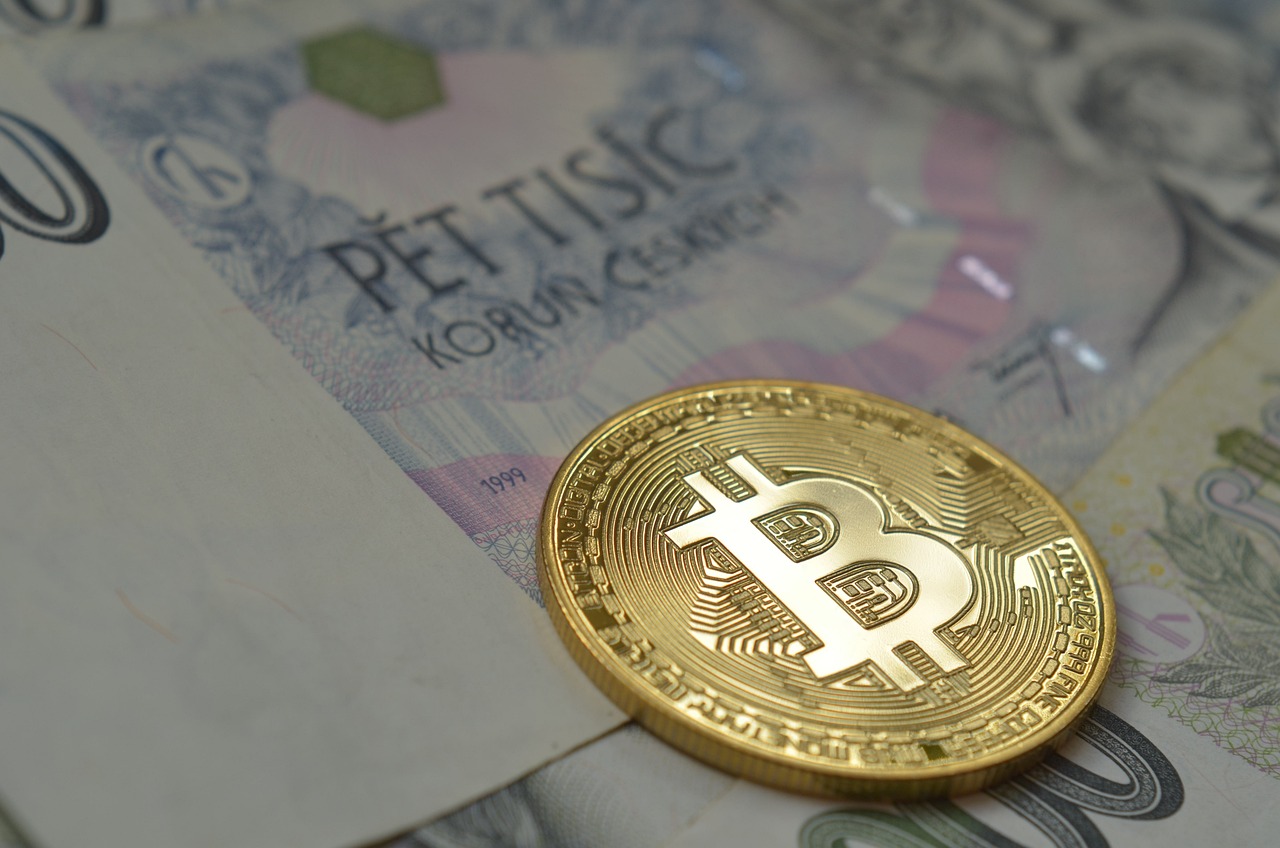
Security Risks
When diving into the world of cryptocurrency trading, one cannot overlook the that lurk in the shadows. Imagine stepping into a bustling marketplace, where vibrant colors and enticing aromas surround you, but hidden among the stalls are pickpockets and con artists waiting for the perfect moment to strike. This is akin to the cryptocurrency landscape, where the potential for profit is often overshadowed by the peril of losing your hard-earned investments to cybercriminals.
One of the most pressing concerns in cryptocurrency trading is the threat of hacking. Cybercriminals are constantly developing sophisticated methods to breach security systems and steal funds. In fact, there have been numerous high-profile hacks over the years that have resulted in millions of dollars in losses. For instance, in 2014, the infamous Mt. Gox exchange was hacked, leading to the disappearance of around 850,000 Bitcoins. Such incidents serve as a stark reminder of the importance of safeguarding your digital assets.
Another common threat is phishing, where attackers impersonate legitimate entities to trick individuals into revealing sensitive information, such as passwords or private keys. This can occur through deceptive emails or fake websites that look nearly identical to the real ones. To combat these threats, traders must remain vigilant and adopt best practices for protecting their investments. Here are a few essential strategies:
- Use Strong Passwords: Always create complex passwords that are difficult to guess. Consider using a password manager to keep track of them.
- Enable Two-Factor Authentication: This adds an extra layer of security by requiring a second form of verification before allowing access to your account.
- Be Wary of Links: Always verify the URLs of websites before entering sensitive information. Avoid clicking on links from unknown sources.
Now, let’s take a closer look at the vulnerabilities associated with cryptocurrency exchanges. Many traders rely heavily on these platforms to buy and sell their digital assets. However, not all exchanges are created equal. Some may have inadequate security measures, making them prime targets for hackers. When choosing an exchange, it's crucial to consider factors such as:
| Factor | Importance |
|---|---|
| Security Features | Ensure the exchange has robust security protocols, including encryption and cold storage. |
| Reputation | Research the exchange's history and user reviews to gauge its reliability. |
| Regulatory Compliance | Choose exchanges that comply with local regulations, as this often indicates a higher level of security. |
In addition to exchanges, understanding the differences between cold and hot wallets is essential for securing your cryptocurrencies. Cold wallets, which are offline storage solutions, are generally considered safer as they are less susceptible to hacking. On the other hand, hot wallets are connected to the internet, making them more convenient for trading but also more vulnerable. It's like keeping your cash in a safe at home versus carrying it in your pocket while walking through a crowded street. Each has its pros and cons, but the choice ultimately depends on your trading habits and risk tolerance.
Lastly, implementing two-factor authentication (2FA) can significantly enhance your account security. This straightforward measure requires users to provide two forms of identification before accessing their accounts, making it much harder for unauthorized individuals to gain entry. Think of it as having both a key and a secret code to enter your house; even if someone has your key, they still can't get in without the code.
In conclusion, while the allure of cryptocurrency trading can be enticing, it's crucial to navigate the landscape with caution. By understanding the various security risks and employing protective measures, traders can safeguard their investments and enjoy the benefits of this exciting financial frontier.
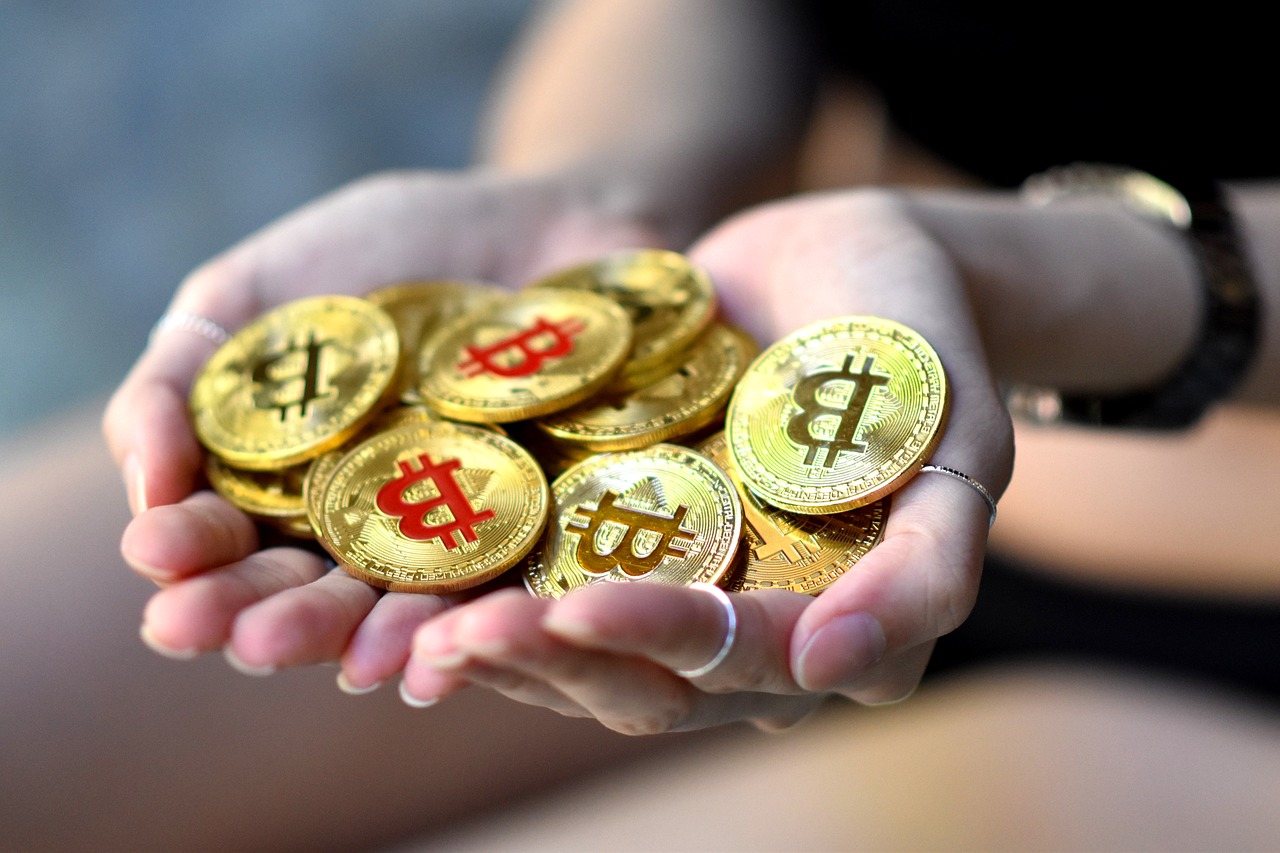
Exchange Vulnerabilities
When it comes to cryptocurrency trading, one of the most significant risks lies in the vulnerabilities associated with exchanges. These platforms serve as the primary gateways for buying, selling, and trading digital currencies, but they are not without their flaws. Just think of exchanges as bustling marketplaces where traders gather to exchange goods; however, these marketplaces can also attract thieves and con artists looking to exploit any weakness. The reality is that many exchanges have been targeted by hackers, leading to substantial losses for traders. For instance, high-profile hacks like the Mt. Gox incident have left a lasting impact on the industry, reminding us that security should always be a top priority.
Understanding the risks associated with using exchanges is crucial for anyone looking to trade cryptocurrencies. The first major vulnerability is the potential for hacking. Cybercriminals are constantly developing new methods to breach security systems, and exchanges, unfortunately, can be prime targets. In fact, a report by CipherTrace revealed that over $1.9 billion was stolen from cryptocurrency exchanges in 2020 alone. This figure illustrates just how prevalent the threat is, and it emphasizes the need for traders to choose their platforms wisely.
Another risk comes from the fact that exchanges can be susceptible to internal fraud. Imagine a scenario where an employee with access to sensitive information decides to exploit their position for personal gain. Such incidents can lead to devastating consequences for users. Therefore, it's essential to research the reputation of an exchange before committing your funds. Look for platforms that have a history of strong security practices and transparent operations.
To help you navigate this complex landscape, here are some key factors to consider when selecting a cryptocurrency exchange:
- Security Features: Look for exchanges that offer robust security measures, such as cold storage for funds and insurance policies against breaches.
- Regulatory Compliance: Choose exchanges that comply with local regulations and have a transparent operating structure.
- User Reviews: Research user feedback and reviews to gauge the reliability and trustworthiness of the exchange.
In addition to these factors, it’s also vital to keep an eye on the exchange's liquidity. A platform with low liquidity may struggle to execute trades quickly, leading to slippage and potential losses. Always check the trading volume and the number of active users to ensure that you're trading on a platform that can handle your needs.
In summary, while exchanges play a pivotal role in the cryptocurrency trading ecosystem, they come with inherent vulnerabilities that traders must be aware of. By conducting thorough research and choosing a secure platform, you can mitigate some of the risks associated with trading. Remember, in the world of cryptocurrency, knowledge is power, and being informed can make all the difference in protecting your investments.
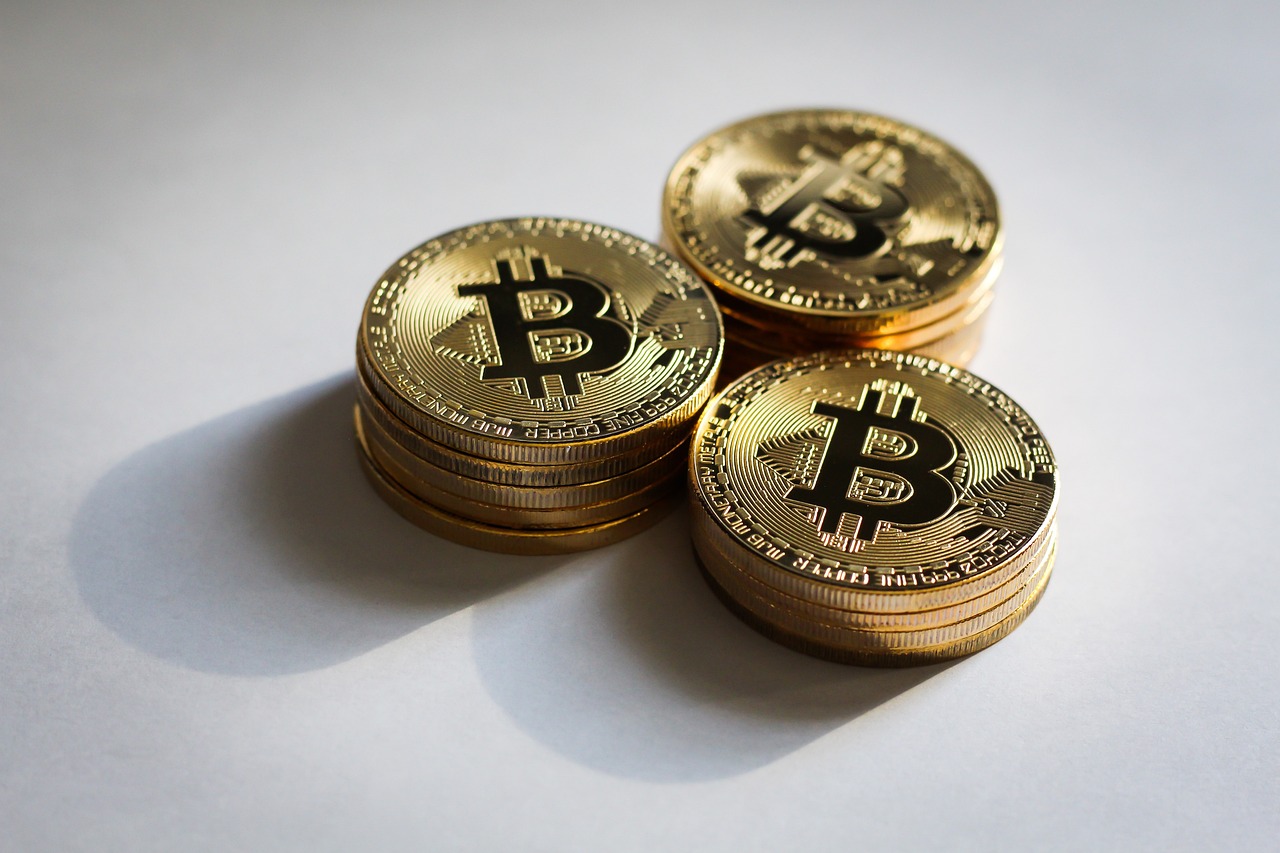
Cold vs. Hot Wallets
When it comes to storing cryptocurrencies, understanding the distinction between cold and hot wallets is absolutely crucial for anyone serious about trading. Think of hot wallets as your everyday wallet that you carry around, ready for quick transactions, while cold wallets are more like a safe deposit box—secure but not as easily accessible. Each type serves a different purpose and comes with its own set of advantages and disadvantages that can significantly impact your trading experience.
Hot wallets are connected to the internet and allow for quick access to your cryptocurrencies. They are ideal for active traders who need to make swift transactions. However, this convenience comes at a cost; being online means they are vulnerable to hacking and phishing attacks. For example, if you store your assets in a hot wallet, a cybercriminal could potentially gain access and steal your funds within moments. So, while hot wallets are great for trading, they require a heightened level of vigilance and security measures.
On the other hand, cold wallets are offline storage solutions, making them much less susceptible to cyber threats. These wallets can take the form of hardware devices or even paper wallets where your private keys are stored physically. While they provide a higher level of security, the trade-off is that accessing your funds can be less convenient. If you want to make a trade, you’ll need to transfer your assets back to a hot wallet, which can take time and effort. This is akin to having to go to your bank to withdraw cash every time you want to buy a coffee—secure, but not always practical.
To give you a clearer view, here's a quick comparison of the two:
| Feature | Hot Wallets | Cold Wallets |
|---|---|---|
| Accessibility | High | Low |
| Security | Low | High |
| Best for | Active Trading | Long-Term Storage |
| Examples | Web wallets, mobile wallets | Hardware wallets, paper wallets |
In summary, the choice between cold and hot wallets largely depends on your trading style and how you prioritize security versus accessibility. If you're trading frequently and need quick access to your funds, hot wallets might be the way to go. However, if you're holding onto your cryptocurrencies for the long term, a cold wallet is your best bet for keeping your assets secure. Ultimately, a balanced approach that employs both types of wallets could provide the best overall protection and flexibility for your trading strategy.
- What is a hot wallet? A hot wallet is a cryptocurrency wallet that is connected to the internet, allowing for quick transactions but with increased security risks.
- What is a cold wallet? A cold wallet is an offline storage solution for cryptocurrencies, providing enhanced security but less accessibility.
- Which wallet is better for trading? Hot wallets are typically better for active trading due to their accessibility, while cold wallets are better for long-term storage.
- Can I use both types of wallets? Yes! Many traders use a combination of both hot and cold wallets to balance security and accessibility.
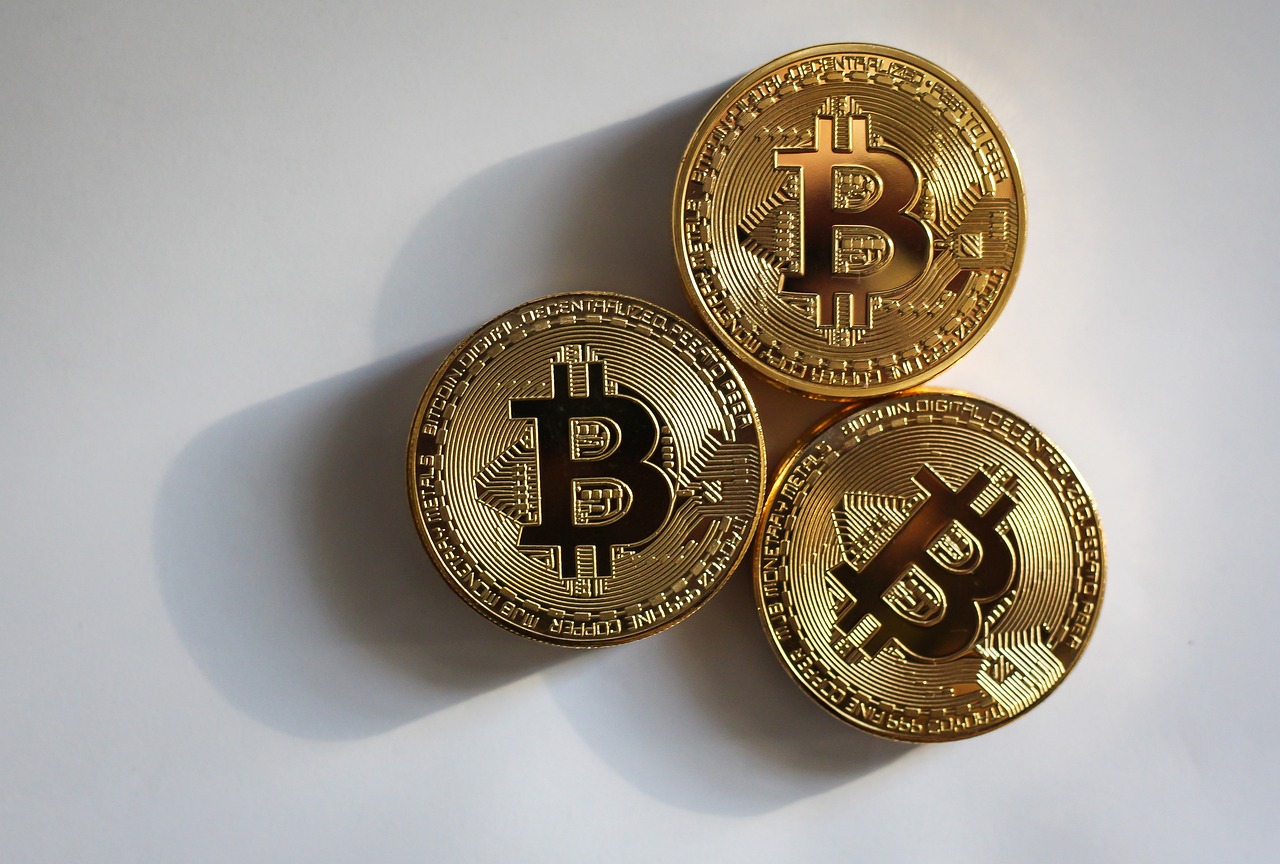
Two-Factor Authentication
In the ever-evolving world of cryptocurrency trading, security is paramount. One of the most effective ways to bolster your account's security is through Two-Factor Authentication (2FA). This method adds an extra layer of protection by requiring not just a password, but also a second form of verification. Imagine your password as a single lock on your door; 2FA is like adding a deadbolt—making it significantly harder for intruders to gain access.
So, how does 2FA work? Typically, after entering your password, you will be prompted to provide a second piece of information, often a code sent to your mobile device or generated by an authentication app. This means that even if someone manages to steal your password, they won't be able to access your account without that second factor. It's a simple yet powerful way to keep your investments safe.
There are several types of 2FA methods available, and each comes with its own level of security:
- SMS Codes: A code sent to your mobile phone via text message. While convenient, this method can be vulnerable to SIM swapping attacks.
- Authentication Apps: Apps like Google Authenticator or Authy generate time-sensitive codes that are much harder for hackers to intercept.
- Hardware Tokens: Physical devices that generate codes or connect to your computer, providing a high level of security.
While 2FA significantly enhances your account security, it is not foolproof. It's essential to choose a reliable method that suits your needs and to remain vigilant. Always be cautious about phishing attempts and never share your 2FA codes with anyone. Remember, a hacker's job is to trick you into giving them access, so stay one step ahead!
In conclusion, implementing Two-Factor Authentication is a crucial step every trader should take to protect their cryptocurrency investments. It may seem like an extra hassle, but in the world of crypto, where the stakes are high, it's a small price to pay for peace of mind. So, if you haven't already, take a moment to enable 2FA on your trading accounts today—your future self will thank you!
- What is Two-Factor Authentication?
Two-Factor Authentication (2FA) is a security measure that requires two forms of identification before granting access to an account. - Why should I use 2FA?
Using 2FA significantly reduces the risk of unauthorized access to your accounts, even if your password is compromised. - What are the best methods for 2FA?
Authentication apps and hardware tokens are generally considered the most secure methods for Two-Factor Authentication.
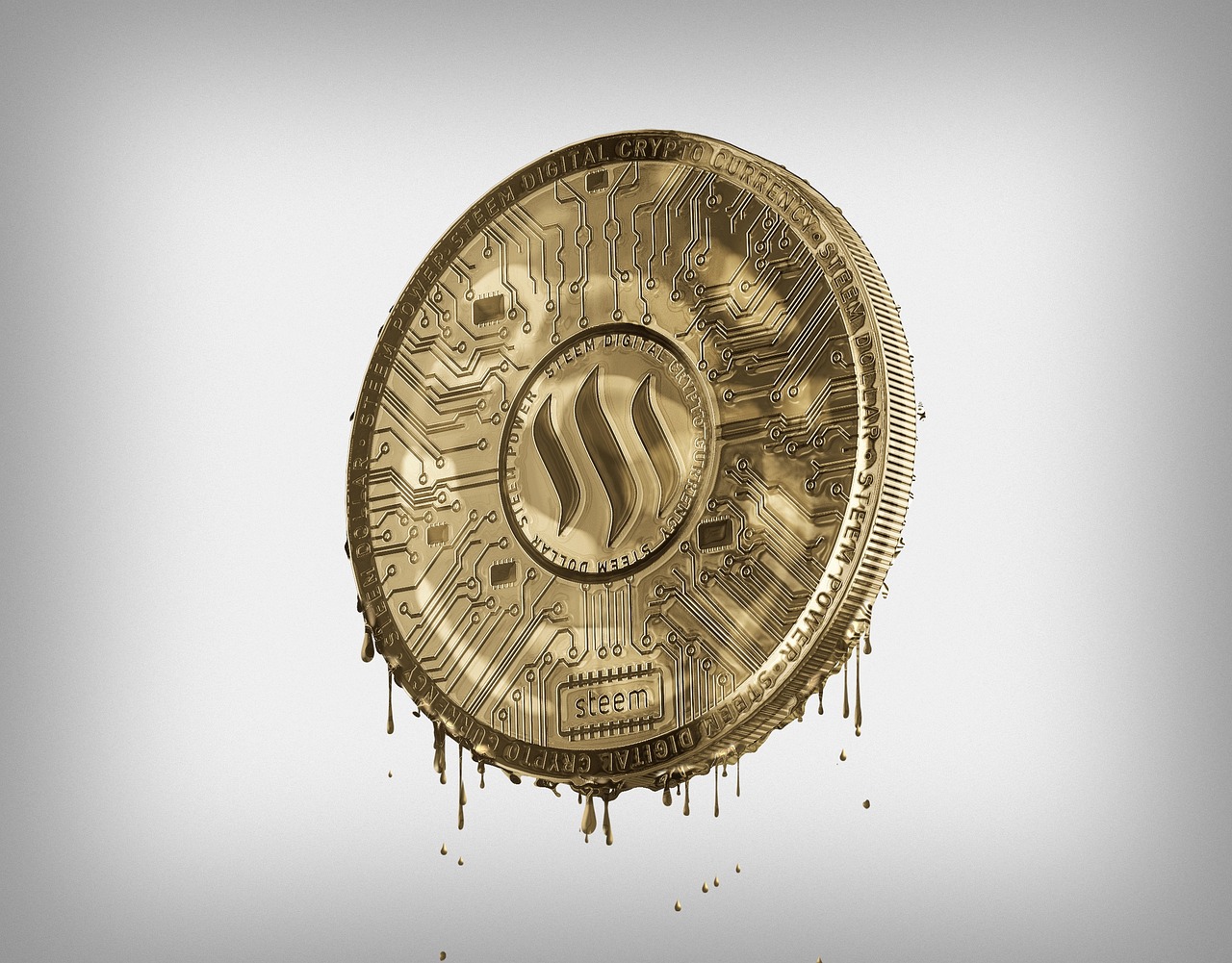
Regulatory Challenges
The world of cryptocurrency is thrilling and full of potential, but it also dances on the edge of a regulatory tightrope. As governments and financial authorities scramble to catch up with the rapid evolution of digital currencies, traders face a myriad of legal risks that can impact their investments. Imagine walking through a foggy forest where the path is constantly shifting; that's what navigating cryptocurrency regulations can feel like. One moment you're on solid ground, and the next, you could find yourself in uncharted territory.
One of the main challenges is the inconsistency of regulations across different countries. While some nations embrace cryptocurrencies and create frameworks to regulate them, others outright ban them. For instance, countries like El Salvador have adopted Bitcoin as legal tender, while China has cracked down on cryptocurrency trading and mining. This disparity means that traders must be vigilant about where they operate and the laws that govern their activities. Keeping track of these changing regulations is crucial, as a misstep could lead to severe penalties or even the loss of your assets.
Moreover, the regulatory landscape is not static; it evolves as authorities respond to market developments and security concerns. For example, the introduction of anti-money laundering (AML) and know your customer (KYC) regulations has added layers of compliance for exchanges and traders alike. These laws are designed to prevent illicit activities but can also complicate the trading process. Traders must be prepared to provide personal information and document their transactions, which can feel invasive and daunting.
It's also essential to consider the impact of potential future regulations. What happens if a government decides to impose heavy taxes on cryptocurrency gains? Or if new laws are introduced that restrict how cryptocurrencies can be traded or transferred? These uncertainties can create a sense of anxiety for traders, making it imperative to stay informed. Regularly checking updates from credible sources and engaging with community forums can help traders navigate these murky waters.
To sum it up, understanding the in cryptocurrency trading is not just about knowing the laws; it’s about staying adaptable and informed. Here’s a quick overview of some key points to remember:
| Aspect | Details |
|---|---|
| Global Regulation | Varies significantly from one country to another, affecting trading strategies. |
| Compliance Requirements | AML and KYC laws require personal information and transaction documentation. |
| Future Uncertainties | Potential new regulations could impact taxes, trading methods, and asset security. |
In conclusion, while the allure of cryptocurrency trading is undeniable, it's essential to tread carefully and stay informed about . The landscape is ever-changing, and being proactive can make all the difference in securing your investments.
- What are the main regulatory challenges in cryptocurrency trading? The main challenges include inconsistent regulations across countries, compliance requirements like AML and KYC, and uncertainties regarding future regulations.
- How can traders stay informed about regulatory changes? Traders can stay informed by following credible news sources, engaging in community discussions, and regularly checking updates from financial authorities.
- What should I do if I encounter a regulatory issue? If you encounter a regulatory issue, it's advisable to consult with a legal professional who specializes in cryptocurrency law.

Psychological Factors
When it comes to cryptocurrency trading, the mental game is just as critical as understanding the market. The emotional rollercoaster that traders experience can heavily influence their decisions, often leading to costly mistakes. Have you ever felt that rush of excitement when you see a price spike, only to panic when it suddenly drops? This is a common scenario for many traders, and it underscores the importance of recognizing and managing psychological factors in trading.
One of the most powerful emotions that traders face is fear. Fear can manifest in various ways, such as the fear of missing out (FOMO) or the fear of losing money. FOMO can lead traders to jump into trades without proper analysis, driven by the anxiety that they might miss a profitable opportunity. On the other hand, the fear of losing can cause traders to hold onto losing positions for too long, hoping that the market will turn in their favor. This emotional tug-of-war can create a cycle of poor decision-making and increased stress.
Conversely, greed can just as easily derail a trader's strategy. When traders become overly confident after a few successful trades, they may start taking unnecessary risks, chasing after bigger profits. This can lead to impulsive decisions that compromise their original trading plan. It's crucial to strike a balance between ambition and caution, ensuring that your trading approach remains grounded in sound analysis rather than emotional impulses.
Additionally, overtrading is another psychological pitfall that can lead to significant losses. When traders feel the urge to constantly engage in the market, they often disregard their own trading strategies and risk management principles. This impulsivity can stem from the excitement of trading or the desire to recover losses quickly. However, overtrading can result in fatigue, which impairs judgment and increases the likelihood of making mistakes.
To combat these emotional challenges, traders can employ several strategies:
- Set Clear Goals: Establishing specific, measurable objectives can help keep emotions in check.
- Stick to a Trading Plan: Having a well-defined trading strategy reduces the temptation to make impulsive decisions.
- Practice Mindfulness: Techniques such as meditation can enhance self-awareness and emotional regulation.
- Limit Exposure: Setting limits on the amount of capital at risk can help mitigate fear and greed.
Ultimately, understanding these psychological factors is essential for anyone looking to succeed in cryptocurrency trading. By acknowledging the emotional aspects of trading and implementing strategies to manage them, traders can make more informed and rational decisions. This not only enhances their trading performance but also contributes to a healthier relationship with the market.
- What are the most common psychological challenges faced by traders? Traders often grapple with fear, greed, and the tendency to overtrade, all of which can impact their decision-making.
- How can I manage my emotions while trading? Implementing a solid trading plan, setting clear goals, and practicing mindfulness can help manage emotional responses.
- Is it normal to feel anxious when trading? Yes, anxiety is a common emotion among traders, especially in the volatile world of cryptocurrency.
- What role does discipline play in trading psychology? Discipline is crucial for maintaining a consistent trading strategy and resisting impulsive decisions driven by emotions.

Fear and Greed
When it comes to trading cryptocurrencies, two emotions reign supreme: fear and greed. These powerful feelings can dictate your trading decisions, often leading to outcomes that are less than favorable. Imagine standing on the edge of a cliff, feeling the rush of adrenaline as you contemplate the leap. This is how traders often feel when they see a sudden price spike or a drastic drop. In the world of crypto, this emotional rollercoaster can wreak havoc on your trading strategy.
Fear often creeps in during periods of market downturns. It's that nagging voice in your head whispering, "What if I lose everything?" This fear can lead to panic selling, where traders hastily unload their assets to avoid further losses. But here's the kicker: selling in a panic can lock in losses that might have been recoverable if one had simply held on a bit longer. On the flip side, greed can be equally destructive. When prices soar, the allure of quick profits can cloud judgment, pushing traders to invest more than they can afford to lose. The desire to ride the wave of success can lead to risky decisions, often resulting in significant losses.
To navigate these treacherous waters, it's crucial to develop a strategy that acknowledges these emotions without letting them take control. Here are some tips to help you maintain a balanced approach:
- Set Clear Goals: Define what you want to achieve with your trading. This can help keep your emotions in check.
- Establish a Trading Plan: Having a well-thought-out plan can guide your decisions and reduce impulsivity.
- Practice Mindfulness: Take a moment to breathe and assess your feelings before making a trade. This can help you avoid rash decisions.
In addition to these strategies, understanding the psychological aspects of trading can be beneficial. For instance, keeping a trading journal can help you track your emotional responses to market movements. By reflecting on your decisions and the emotions behind them, you can identify patterns and work towards a more disciplined trading approach.
Ultimately, recognizing and managing the influences of fear and greed is essential for any trader looking to thrive in the volatile world of cryptocurrency. By maintaining a level head and sticking to your strategy, you can make informed decisions that align with your long-term goals rather than succumbing to the whims of the market.
1. How can I control my emotions while trading cryptocurrencies?
Controlling emotions involves setting clear trading goals, sticking to a well-defined trading plan, and practicing mindfulness. Keeping a trading journal can also help you reflect on your decisions.
2. Why is fear so prevalent in cryptocurrency trading?
Fear is prevalent due to the inherent volatility of the cryptocurrency market. Rapid price fluctuations can trigger panic, leading to impulsive decisions that may not be in the trader's best interest.
3. Can greed lead to significant losses?
Yes, greed can lead to significant losses as it may push traders to take unnecessary risks or invest more than they can afford to lose. It's essential to remain disciplined and stick to your trading strategy.
4. What are some techniques to reduce overtrading?
To reduce overtrading, set strict limits on the number of trades you make daily or weekly, and stick to your trading plan. Additionally, take breaks when you feel overwhelmed to regain perspective.

Overtrading and Impulsivity
Have you ever found yourself glued to your screen, watching the price of a cryptocurrency fluctuate wildly, and felt the urge to jump in and make a trade? If so, you’re not alone. Overtrading is a common pitfall for many traders, and it often stems from impulsivity driven by emotions rather than sound strategy. Picture this: you’re at a carnival, and the bright lights and thrilling rides are calling your name. You might feel compelled to try every ride, but that can lead to a dizzying experience, just like overtrading can leave your trading account spinning out of control.
So, what exactly is overtrading? In simple terms, it refers to making too many trades in a short period, often without a clear plan or strategy. This behavior can be fueled by a variety of factors, including excitement from potential profits, fear of missing out (FOMO), or simply boredom. The thrill of the chase can be intoxicating, but it often leads to poor decision-making. Think of it as trying to catch a butterfly with your bare hands; the more you chase, the more elusive it becomes.
One of the biggest dangers of overtrading is the impact it can have on your finances. Each trade typically comes with fees, and those can add up quickly if you’re not careful. Additionally, frequent trading can lead to significant emotional stress, which can cloud your judgment. When you’re stressed, you might make rash decisions, like selling at a loss or buying at a peak, which can exacerbate your financial woes. To illustrate this, consider the following table that outlines the potential consequences of overtrading:
| Consequence | Description |
|---|---|
| Increased Fees | Frequent trades can lead to higher transaction costs, eating into your profits. |
| Emotional Burnout | Constantly monitoring the market can lead to fatigue and poor decision-making. |
| Loss of Focus | Overtrading can divert attention from a well-planned trading strategy. |
| Higher Risk of Losses | Impulsive decisions often result in buying high and selling low, leading to losses. |
To combat overtrading, it’s essential to develop a disciplined approach. Here are some strategies to help you maintain balance:
- Set Clear Goals: Define what you want to achieve with your trading, whether it’s short-term gains or long-term investments.
- Create a Trading Plan: Stick to a well-thought-out plan that outlines when to enter and exit trades.
- Limit Your Trades: Decide in advance how many trades you’ll make in a day or week to avoid impulsivity.
- Take Breaks: Step away from your screens regularly to clear your mind and reduce emotional trading.
Ultimately, the key to successful trading is not just about making profits but also about maintaining a level head. By recognizing the signs of overtrading and implementing strategies to counteract impulsivity, you can enhance your trading experience and make more informed decisions. Remember, it’s not about how many trades you make; it’s about making the right ones. So, the next time you feel the urge to trade impulsively, take a step back, breathe, and remind yourself that patience often pays off in the world of cryptocurrency.
- What is overtrading? Overtrading refers to making too many trades in a short period, often without a clear strategy.
- What causes impulsivity in trading? Impulsivity can be caused by emotions such as excitement, fear of missing out, or boredom.
- How can I avoid overtrading? Set clear trading goals, create a trading plan, limit your trades, and take regular breaks.
- What are the risks of overtrading? Risks include increased fees, emotional burnout, loss of focus, and higher chances of losses.
Frequently Asked Questions
- What is market volatility in cryptocurrency trading?
Market volatility refers to the rapid and significant price fluctuations that cryptocurrencies can experience. This can be caused by various factors, including market sentiment, news events, and trading volume. Understanding volatility is crucial for traders as it affects their strategies and risk management.
- How can I protect my cryptocurrency investments from security threats?
To protect your investments, consider using secure wallets, enabling two-factor authentication, and being cautious of phishing attempts. Always research the exchanges you use and keep your software updated to safeguard against potential vulnerabilities.
- What are the differences between cold and hot wallets?
Cold wallets are offline storage solutions that provide a higher level of security for your cryptocurrencies, while hot wallets are connected to the internet and offer more convenience for trading. Each has its pros and cons, so choose based on your trading habits and security needs.
- Why is regulatory knowledge important in cryptocurrency trading?
Staying informed about regulations is vital because the legal landscape for cryptocurrencies is constantly changing. Understanding these regulations helps traders avoid potential legal issues and ensures compliance with local laws.
- How do psychological factors impact trading decisions?
Psychological factors, such as fear and greed, can heavily influence a trader's decisions. These emotions may lead to impulsive actions, overtrading, or panic selling. Maintaining a disciplined approach and being aware of these feelings can help traders make more rational choices.
- What is overtrading and why is it dangerous?
Overtrading occurs when a trader makes too many trades in a short period, often driven by emotions rather than strategic planning. This can lead to significant losses and increased transaction fees, making it essential to develop a balanced trading approach.












